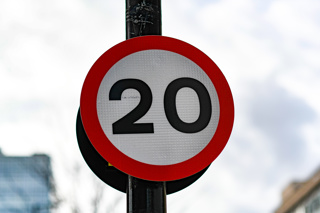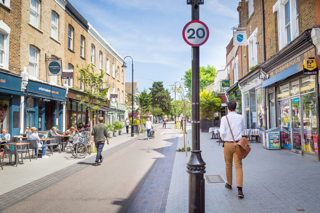A new campaign to lower the speed limit in urban areas from 30MPH to 20MPH has launched today (April 9).
The organisers say an emergency 20MPH limit will reduce the pressure on the NHS with fewer road casualties.
National campaign 20’s Plenty for Us has joined with 460 local community campaigns to support Lower the Baseline, a initiative set up by doctors to protect NHS services through public health interventions.
Rod King MBE, founder and campaign director of 20’s Plenty for Us, said: “It is in the Government’s power and interest to change all 30mph limits to 20mph by making appropriate public announcements, without any need to change road signs. The precedent already exists to change national speed limits in an emergency. The Government changed national speed limits in the 1974 fuel crisis to save petrol and it must do this in the 2020 Covid-19 crisis to save lives. This move will match the mood all of us to do everything possible for our NHS resources and staff.”
Supporting the move, Dr Robert Hughes (London School of Hygiene and Tropical Medicine) and 109 other doctors wrote in the Times on 25th March: “..each month there are nearly 3,000 road traffic collision-related admissions to NHS hospitals in England alone. Lowering and enforcing speed limits would reduce the frequency and severity of road traffic collisions.”
In England alone there are around 35,000 non-fatal admissions to hospital every year related to road traffic accidents. In Canada, lowering the speed limit from 40km/h to 30km/h (20mph) was associated with a 28% decrease in pedestrian-motor vehicle collisions and a 67% decrease in major and fatal injuries.
Population health expert Prof. Sunil Bhopal, said “We therefore suggest that the government urgently explore an emergency reduction of all national speed limits to 50mph, and to 20mph in urban areas.”




















Glenn Ewen - 09/04/2020 11:44
This is a strange time to be pushing this agenda again. Whilst every assistance should be given to the NHS during this crisis, it is very clear that there are hardly any vehicles on most roads, particularly in residential areas, and very few pedestrians likely to interact with those few vehicles. The Police, and Government will have other things to do at the moment than enforce this, let alone introduce emergency legislation. There is even serious doubt whether the 20mph limits are effective, and even some evidence that incidents have increased as drivers spend more time watching their speedos than they do the road ahead.